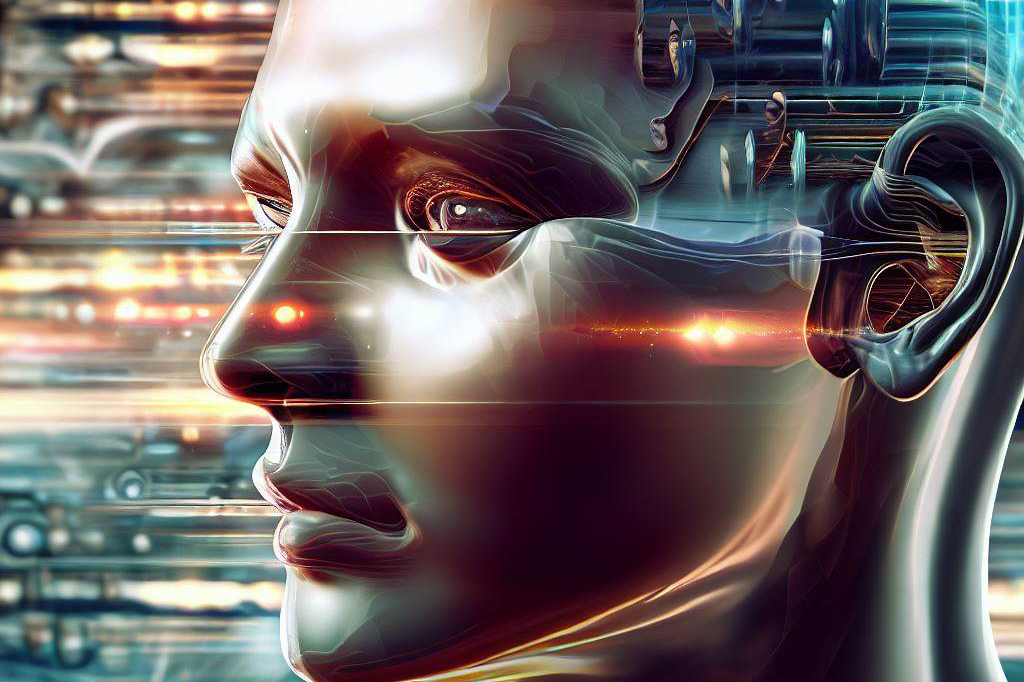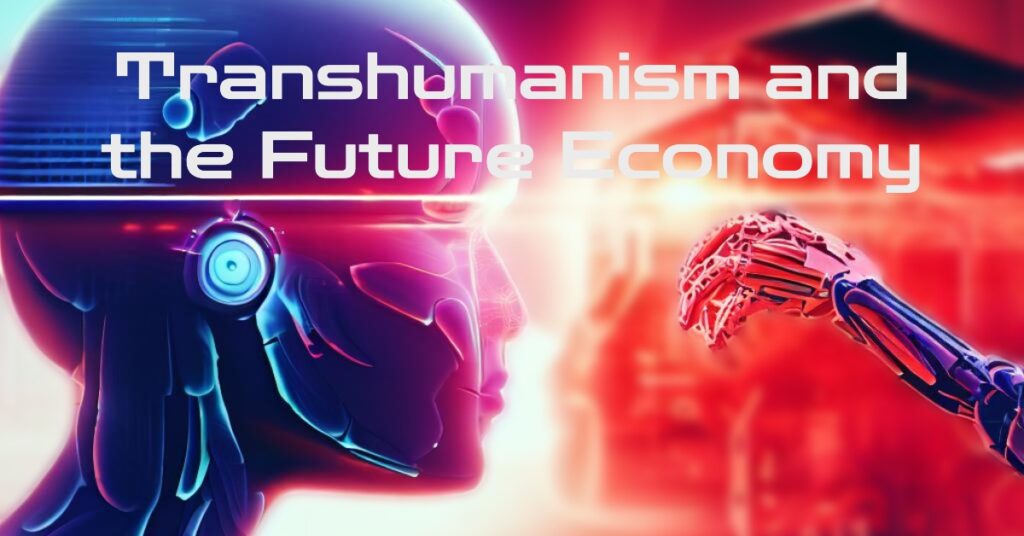Balancing Technological Advancements and Humanity in Transhumanism
Transhumanism is a philosophy that seeks to transcend human limitations using technology. It proposes the use of technological enhancements to augment human abilities and extend human life beyond biological limits. Transhumanists believe that technology can be used to enhance the physical, cognitive, and emotional capacities of humans, and that this will lead to a better future for all.
However, while transhumanism offers the potential for significant advancements in technology, it also raises concerns about the potential loss of humanity. The question remains: Will transhumanism lead to a loss of humanity?
Here’s an exploration of the psychological, emotional, and cultural implications of advancing technology through transhumanism, examining how these advancements may affect our sense of self, our relationships with others, and our cultural values and norms.
The Psychological Implications of Transhumanism

Technology has always played a pivotal role in shaping human psychology, with each new advancement, from fire to smartphones, impacting our thoughts and behaviors. As we delve into the realm of transhumanism, we are venturing into uncharted territory that could have profound effects on individual psychology.
Transhumanism is the belief that humans can use technology to enhance their physical and cognitive abilities beyond what is considered normal. While this offers exciting possibilities for human development, it raises important psychological concerns that must be considered in any discussion about the future of transhumanist philosophy.
One potential psychological implication of transhumanism is its effect on self-esteem and identity formation. As individuals enhance their physical and cognitive abilities, they may develop a distorted view of themselves and their capabilities, leading to unrealistic expectations and a lack of acceptance of their natural limitations. This could result in negative psychological consequences such as low self-esteem, identity confusion, and a decreased sense of purpose.
Additionally, cognitive enhancements may lead to significant changes in an individual’s personality or character traits. For instance, someone who has been enhanced with higher cognitive abilities such as intelligence or memory capacity may feel superior to others who have not undergone similar enhancements. This could create interpersonal conflicts and negatively impact mental health.
Another concern is the potential for addiction or obsession with enhancement technologies. As with any form of enhancement, there is a risk that individuals may become fixated on improving themselves at any cost. This could lead to an unhealthy focus on achieving certain physical or cognitive goals, which could ultimately detract from other areas of their lives and contribute to psychological distress.
Moreover, individuals who choose not to enhance their abilities may feel inadequate or inferior compared to those who do. This could result in feelings of depression or anxiety, as they may perceive themselves as being left behind in a society that increasingly values enhanced abilities.
Transhumanism represents a significant shift in our understanding of what it means to be human, with the potential to fundamentally change the way we perceive ourselves and our place in the world. While the idea of using technology to enhance our physical and cognitive abilities is undeniably appealing, it is crucial to address the psychological concerns surrounding self-esteem, identity formation, and obsession with enhancement.
The Emotional Implications of Transhumanism

Exploring the Impact on Human Relationships and Society
Transhumanism has the potential to not only change our minds but also profoundly affect our emotions and relationships. As we explore the emotional implications of transhumanism, it is essential to consider how these enhancements may influence the way we feel and interact with one another.
One area of concern is empathy. Technological enhancements may dampen or dull our emotions, particularly empathy, which is often tied to physical sensations. We must contemplate the consequences of people no longer experiencing empathy in a genuine way, as this may hinder our ability to connect and understand one another on a deep, emotional level.
Another critical aspect to consider is the potential emergence of a new class system. Those who can afford enhancements may be perceived as “more than” those who cannot. This divide could lead to lasting emotional consequences, social unrest, or deep divisions between people as they compete for resources and attention. This disparity may also create feelings of resentment, exclusion, and isolation for those who cannot afford or do not wish to undergo enhancements, impacting their emotional well-being.
The power dynamic within relationships may also shift as a result of transhumanist technologies. With enhanced abilities come new ways of experiencing life, new forms of communication, and new modes of interaction. However, it remains unclear exactly how this will play out socially. Enhanced individuals may find it difficult to relate to non-enhanced individuals, leading to a potential disconnect in interpersonal relationships.
Moreover, as transhumanism gains traction in society, it is possible that people’s perceptions of what is “normal” will change. Those without enhancements may begin to feel less human or valuable compared to their enhanced counterparts. This shift in societal norms will undoubtedly have significant emotional implications for humanity as a whole.
Cultural Implications of Transhumanism

Examining the Impact on Society, Values, and Norms
As transhumanism continues to advance, society as we know it may undergo significant changes. Technological advancements have always influenced cultural values and norms, but with transhumanism, these impacts are likely to be even more profound. It is crucial to explore the potential shifts in cultural values, religious beliefs, and the emergence of new social hierarchies that may result from widespread adoption of transhumanist technologies.
The Evolution of Societal Values and Norms
The emergence of transhumanism will inevitably affect societal norms and values, as humans merge with technology and redefine what is considered normal or acceptable behavior. For instance, perceptions of disabilities may change if individuals can enhance their abilities through technology. Similarly, the concept of aging may evolve as people slow down or even reverse the aging process through technological enhancements. This could lead to a society that prioritizes physical abilities and youth over wisdom and experience, significantly impacting our cultural values.
Transhumanist Beliefs vs. Religious Beliefs and Cultural Traditions
Transhumanism has been likened to a religion, with its own set of beliefs and goals for achieving immortality or post-humanity. However, these beliefs can conflict with religious beliefs and cultural traditions that have existed for centuries. Many religions believe in an afterlife or a soul separate from the physical body, whereas transhumanists seek to enhance physical capabilities and potentially live forever in this life. These contrasting perspectives may create tensions as transhumanist beliefs vie for acceptance alongside traditional religious beliefs and cultural traditions.
The Emergence of a New Class System Based on Technological Enhancements
There is growing concern about a potential divide between those who can afford technological enhancements and those who cannot. This disparity could lead to the emergence of a new class system based on access to technology. Those with the financial means to enhance their abilities may become an elite class, exacerbating the societal divide between the haves and have-nots.
This development could have significant cultural implications, with individuals who cannot afford enhancements being marginalized and left behind. Furthermore, it is possible that the enhanced abilities of some may be perceived as inherently superior to those of unenhanced individuals, leading to discrimination and prejudice against those who choose not to enhance or cannot afford to do so.
TL;DR

- Transhumanism: enhancing human abilities through technology
- Psychological concerns: self-esteem, identity, addiction/obsession
- Emotional implications: empathy, relationships, new class system
- Cultural impact: societal values, religious beliefs, traditions
- Ethical challenges: balance benefits with emotional well-being, cultural diversity, social cohesion
It is clear that transhumanism has the potential to drastically change our world as we know it. However, whether or not this change will ultimately lead to a loss of humanity remains uncertain.
While some may argue that these advancements could lead to a divide between those who can afford enhancements and those who cannot or that they could create an obsession with enhancement leading to a loss of identity and purpose; others will say that embracing technological enhancements is simply another step in our evolution as humans. Ultimately, only time will tell what impact transhumanism will have on humanity.
It is up to each individual to weigh the pros and cons for themselves about whether or not they wish to embrace these advancements. What is certain is that society must carefully consider the ethical implications surrounding technology advancement in order not to lose sight of what makes us human: our empathy towards others, our connection with nature and spirituality, our ability for creativity beyond logic or algorithm-based decisions.
While there are certainly concerns surrounding transhumanism’s impact on humanity; there are also many exciting possibilities for advancement. As long as we stay aware of both sides of this issue – embracing the positive changes while being mindful not to lose sight of what makes us uniquely human – we can ensure a bright future for ourselves and generations yet unborn.

C M, a seasoned editor, journalist, and consultant, is deeply fascinated by the convergence of technology, space, and the future of humanity.
With a particular interest in transhumanism, futurology, and the philosophical and ethical dimensions of these domains, C M serves as the lead contributor to TranscendSphere and SpaceSpotlight.
When not penning insightful articles on these rapidly evolving fields, C M indulges in their love for podcasts and books, proudly embracing their status as a ‘Happy Nerd Extraordinaire!’





